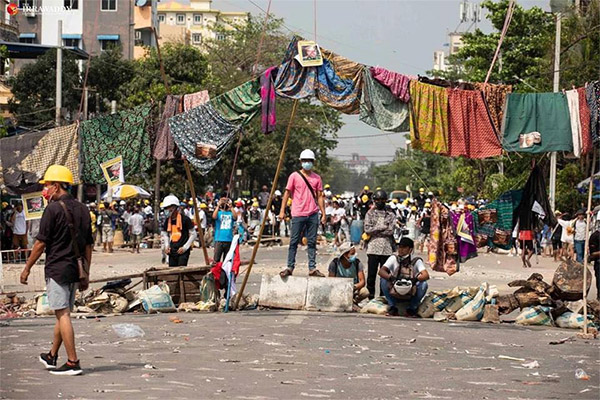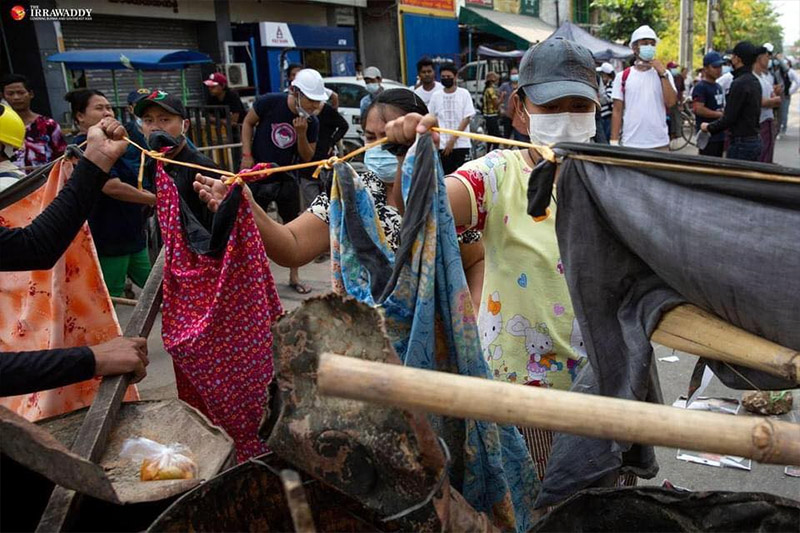Female power has been on display in Yangon, flapping in the wind yesterday on International Women’s Day.
Women, who have led opposition to the military takeover from the front lines, raised their traditional garments in the ultimate repudiation of the army’s patriarchal power by using its own misogynistic beliefs against it.
“Our Sarong, Our Banner, Our Victory!” they chanted as they hoisted their longyi waistcloths from flagpoles and clotheslines to scare off police and soldiers, who believe going near them will sap their manly mojo.
The idea got a boost last week when police were seen going out of their way to avoid the hanging htameins, as female longyis are called.
Htun Lynn Zaw explained to Coconuts why traditional sexism has imbued the simple cloths with the power to ward off cops.

“As a kid, I remember that whenever we played football in our back yard, there was a corner for the washing line where every boy dreaded to go to when the ball went off in that direction, because it would lessen our Bhone,” Htun Lynn Zaw, 20, said of the notion of spiritual energy.
They also believed it would being bad fortune.
“That corner was reserved solely to dry the htameins of our mother, sisters, aunties, and grandmother,” he added.
Myanmar has seen the rise of numerous female icons taking an active role in its history of revolution. Of course looming largest over the streets today is Aung San Suu Kyi, the state counsellor arrested by the military when it staged its coup on Feb. 1. But there’s also women like Phyoe Phyoe Aung, a student activist and former political prisoner recognized internationally for her courage, and Ei Thinzar Maung, who has been actively involved in human rights issues on behalf of minority groups.
Still, youth are indoctrinated to misogynistic attitudes at the youngest ages, from the gounds of the pagoda to their schools and back yards.
Protesters hope the raising of the htamein as a potent political symbol will help defuse these long held biases and gradually lead to dismantling the entire status quo.
Another demonstrator, 32-year-old Sai Lone, told Coconuts that the power of the garments is in the eye of the beholder.
“It depends on what you believe. For soldiers, they are afraid of it because it makes them vulnerable,” Sai Lone said. “For young protesters, they can wear it as a symbol of luck from their moms when they come out to protest.”
Related
Clashes erupt across Yangon as bloodshed fails to deter protests




